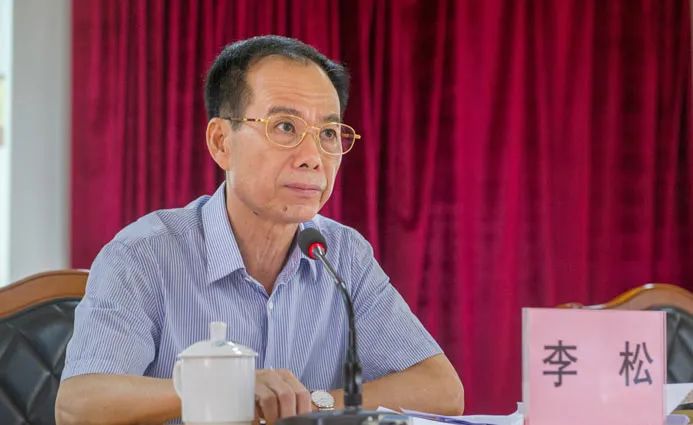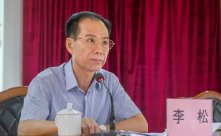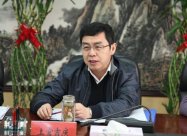
According to the news of the Guangdong Provincial Commission for Discipline Inspection on November 7, Li Song, former member of the Standing Committee of the Huizhou Municipal Party Committee and the former secretary of the Municipal Discipline Inspection Commission, is suspected of serious disciplinary violations and is currently undergoing discipline review and supervision investigation by the Guangdong Provincial Commission for Discipline Inspection.
Li Song
Public resumes show that Li Song, male, Han nationality, born in October 1955, native of Leizhou, Guangdong, a working university degree, joined the work in December 1974, and joined the Communist Party of China in April 1976.
In 2001, Li Song was the Deputy Minister of the Organization Department of the Huizhou Municipal Party Committee; in December 2006, he served as member of the Standing Committee of the Huizhou Municipal Party Committee and Secretary of the Municipal Discipline Inspection Commission;The duties of the Standing Committee of the Huizhou Municipal Party Committee and Secretary of the Discipline Inspection Commission; retired in March 2017 , more than 6 years later, this time was investigated.
On November 7, there were two previous disciplinary inspection and supervision cadres who had fallen off. The Discipline Inspection and Supervision Group of Inner Mongolia's Discipline Inspection and Supervision Group, the former head of the Inner Mongolia Bank and former member of the Party Committee of Inner Mongolia, Ma Bao Lin was expelled from the party and public office.After investigation, Ma Baolin, as a party member and leading cadre of the disciplinary inspection and supervision system, was lost in ideals and beliefs, had no sense of purpose, had no strict self -cultivation, ignored the spirit of the eight central regulations, accepted banquets in violation of regulations, super standard equipment, occupied office rooms, and accepted in violation of regulations.Gifts; indifferent organizational concepts, illegally obtain benefits for others in organizational personnel; if power is alienated, and uses positions to purchase cars at low prices to seek private interests;> Using the convenience of the position, in the process of the selection and appointment of cadres, the problem of the clues of the problem, the benefit of others and receiving the property for others.
Zhou Peibin, former leader of the Discipline Inspection and Supervision Team of the Provincial Public Security Department of Shanxi Provincial Commission for Discipline Inspection, was expelled from the party. After investigation, Zhou Peibin lost his ideals and beliefs, abandoned his original mission, was unfaithful to the party, confrontable organizational review; ignored the spirit of the eight central regulations, received gifts and gifts, and accepted the accommodation and catering provided by the management service objects in violation of the regulations;In violation of the organizational principles, it is not as good as explaining the problem when the organizational conversation letter is inquiring; it is a large amount of return to the management service target's illegal borrowing of loans; the use of job convenience is profitable for others in terms of engineering contracting, and illegally accept huge property.
November 3rd 4 days ago , the national disciplinary inspection and supervision cadre team education and rectification leadership group held the fourth (enlarged) meeting.
Li Xi, member of the Standing Committee of the Political Bureau of the CPC Central Committee and secretary of the Central Commission for Discipline Inspection, attended the meeting and delivered a speech.He emphasized that we must continue to grasp the rectification and rectification, dig deep into the root cause of the problem, activate rectification measures, do a good job of rectifying, promote the end, change, and root, and strive to turn the "problem list" into a "results list". We must continue to remove the horses of the harmful group, quickly deal with the clues of the problem, firmly investigate and deal with the cases, deepen the case, promote reform, and promote the treatment of a case.




